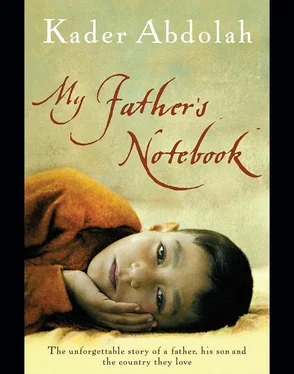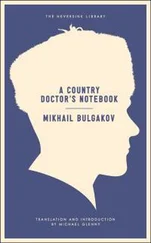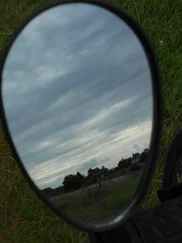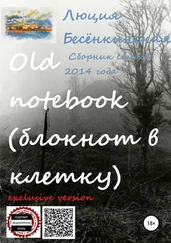“I saw him walking towards the prison this morning when I was working in the garage, but I don’t remember seeing him come back. You should ask the people in the teahouse on the square by the prison. Have you got a car? No? It’s a long walk. Just let me grab my coat and I’ll drive you there.”
The garage owner fetched his jeep and the men got in.
“Akbar’s a good man,” he said as he drove. “People say he brings luck. He mended my carpet so well that you can’t even tell it’s been mended. His life hasn’t been easy, but we’re living in a crazy world now. It’s wrong to put women and girls in jail. Allah is sure to punish us for that. Even the shah didn’t dare lock up women, but the imams do whatever they want.”
The teahouse was dark, but the garage owner knew where the teahouse owner lived. He drove towards the mountains. After a few miles they saw the lights of a village. He parked in front of a house on the village square.
“Mashhadi! Hey, Mashhadi, are you home?” he shouted up at a lighted window on the second floor.
The teahouse owner looked out of the window. He recognised the jeep and came downstairs.
“Welcome, come in. What can I do for you?”
“Can you help these people?” the garage owner asked. “They’re looking for Aga Akbar, the carpet-mender. You know, the deaf-mute who walks with a cane and goes to visit his daughter in prison.”
“I know who you mean.”
“He hasn’t come home. He’s got health problems, and they’re afraid he’s fallen down somewhere. They’ve searched the whole road. I thought you might have seen him.”
“You’re right, I have. He always waits for his wife in my teahouse. This morning he had breakfast and when she came, the two of them went to the prison. But after that? I haven’t the faintest idea. Let me think… Yes, I saw him again after visiting hours. He was standing at the bus stop, talking to a woman.”
“Then what happened?” Bolfazl asked.
“The bus came, but Akbar didn’t get on. He stood there for a while, staring up at the mountains. That’s all I remember.”
“Where on earth could he have gone after that?” Bolfazl wondered.
“Maybe he went to visit someone?” Atri suggested.
“No, he knew Tina had fainted.”
“So he must have headed home,” Atri concluded.
“No, I don’t think so.”
“Then where did he go?” the neighbour asked.
“Well, I think he went uphill instead of downhill.”
“Uphill?”
“Yes, into the mountains,” Bolfazl said.
“Into the mountains?” the neighbour asked, in surprise.
“Perhaps he did,” Atri said. “It’s entirely possible.”
“May I ask you a question?” Bolfazl said to the teahouse owner. “According to rumours, a few prisoners have escaped. Do you happen to know anything about that?”
The teahouse owner looked first at the garage owner, then at Bolfazl. “I’m sorry, but I prefer to mind my own business. I have five children, so the answer is no, I don’t know anything about an escape. I saw the carpet-mender standing at the bus stop and that’s all I can tell you. I’m sorry.”
“That’s enough,” the garage owner said. “They have an answer to their question. I don’t want to get mixed up in this, either, but the carpet-mender is a decent man. That’s why I brought them here. Don’t worry, we’re leaving.”
The teahouse owner went back into his house and locked the door.
The garage owner started his jeep. “I don’t know what you’re planning to do,” he said, “but I’m going home. Please forgive me for not helping you more.”
“You’ve already done a lot,” Bolfazl said. “Thank you. We’d appreciate it if you could give us a ride back to the square.”
He drove them to the square and they got out.
While the three men waited at the bus stop, they talked about what they should do next.
“We can’t give up yet,” Bolfazl said. “Let’s search the mountain path.”
“That’s like looking for a needle in a haystack,” the neighbour said.
“I know Akbar,” Bolfazl replied. “If he thought Golden Bell was in the mountains, he’d go looking for her.”
“Surely he wouldn’t go into the mountains with all this snow?” the neighbour said.
“That’s what I’d do if I were in his place,” Bolfazl said.
“This is no time for talk,” Atri said. “Let’s start up the mountain. He can’t have gone far with his cane.”
They took the mountain path, shining their lanterns on the footprints in the snow.
“This one was made by a soldier’s boot,” Bolfazl said. “And that one and all of those, too.”
“What about these?” Atri asked.
“They were made by ordinary shoes. We should follow them.”
“The prison guards must have followed them, too,” Atri said.
“I don’t think so,” said the neighbour. “This isn’t the route you’d take if you were escaping from prison.”
“Why not?” Bolfazl asked.
“Because your footprints would show up clearly in the snow,” the neighbour explained.
“If you were in danger and had no other options, you’d want to get up the mountain as quickly as possible.”
“I don’t agree,” the neighbour said. “My guess is that they took the paved road to the village, then went on to the next village and so on. If they’re smart, they’ll hide for a few days, then go into the mountains.”
At that point, the soldiers’ footprints stopped and only one set of footprints went on, gradually merging with those of the mountain goats.
The men climbed higher and higher until they came to a path that could be traversed only by nimble-footed mountain goats and mountain climbers with ropes and spikes. It also happened to be the path that led to the cave with the cuneiform relief.
“He must have taken this path,” said Bolfazl.
“With a cane?” said Atri.
Bolfazl knelt in the snow and inspected the tracks by the light of his lantern.
“The mountain goats come here in search of food,” he said. “Most of them don’t dare go any further. It’s impossible to make out a human footprint among all these tracks. I think we’d better turn back.”
They arrived home with their darkened lanterns in the middle of the night. The women received them in silence. No one dared cry, no one dared speak. The night had swallowed up Akbar and Golden Bell.
Daylight broke through the window. The sun rose slowly, but brought no news. The days came and went, and so did the nights, and still there was no news.
Then, on one of the first days of spring, when a shepherd was out looking for grass for his flock, his dog began to bark. The shepherd hurried over to investigate. There, between the rocks, he found the body of an old man, his grey hair glinting like polished silver in the freshly fallen snow.
AGA AKBAR’S NOTES

This is the end of Aga Akbar’s story, though not the end of his cuneiform notebook. Unfortunately, the last few pages are indecipherable.
It’s hard to know where he wrote those last few pages.
At home?
No, probably not.
They’re completely illegible. Perhaps he wrote them in the mountains, by a craggy cliff, which he’d helped Golden Bell to climb.
Which he’d helped Golden Bell to climb?
No, that’s impossible.
Anyway, you can see that he wrote the last few pages in difficult conditions.
He no doubt wrote them in the snow, in the freezing cold.
Nothing more was ever heard of the escaped prisoners. To this day their fate is unknown. Perhaps Akbar did find them in the mountains. Perhaps he told them not to follow the railway tracks and showed them the path that would lead them to Saffron Mountain.
Читать дальше













